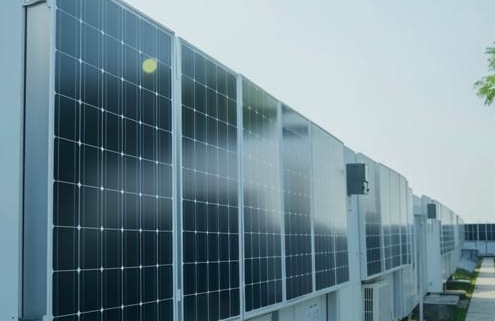Embracing Energy Independence: The Off-Grid Home Energy Storage System
In an era where sustainable living takes center stage, the concept of off-grid home energy storage systems has become increasingly appealing. These systems, designed to liberate households from traditional power grids, offer a multitude of benefits that extend beyond environmental considerations.
Harnessing Solar Power
At the heart of off-grid living is the utilization of solar panels to capture and convert sunlight into electricity. The installation of solar panels on rooftops or within the property allows for a continuous and renewable energy source. This eco-friendly approach not only reduces carbon footprints but also provides homeowners with a reliable and sustainable power solution.
Battery Storage for Uninterrupted Power
One of the key components of off-grid systems is advanced battery storage technology. These batteries store excess energy generated during sunny days for use during periods of low sunlight or at night. This feature ensures a constant and uninterrupted power supply, granting homeowners autonomy over their energy needs irrespective of external factors.
Energy Management and Efficiency
Modern off-grid systems are equipped with sophisticated energy management tools. Users can monitor real-time energy production and consumption, enabling them to optimize usage patterns for maximum efficiency. Smart technologies ensure that power is distributed intelligently, minimizing waste and maximizing the utility of stored energy.
Environmental Impact
The environmental benefits of off-grid living are profound. By relying on renewable energy sources and minimizing dependence on conventional power grids, households contribute significantly to the reduction of greenhouse gas emissions. This eco-conscious approach aligns with global efforts to combat climate change and promote sustainable practices.
Economic Considerations
While the initial investment in an off-grid home energy storage system may seem significant, the long-term economic advantages are substantial. Reduced reliance on external power sources translates into lower electricity bills over time. Additionally, some regions offer incentives and tax credits for adopting renewable energy solutions, further enhancing the financial appeal of off-grid living.
Challenges and Future Developments
Despite the numerous advantages, off-grid living comes with its set of challenges. Storage capacity limitations, occasional reliance on backup generators, and the need for occasional maintenance are aspects that homeowners must consider. However, ongoing advancements in technology are addressing these challenges, with innovations aimed at enhancing efficiency and overcoming existing limitations.


Leave a Reply
Want to join the discussion?Feel free to contribute!